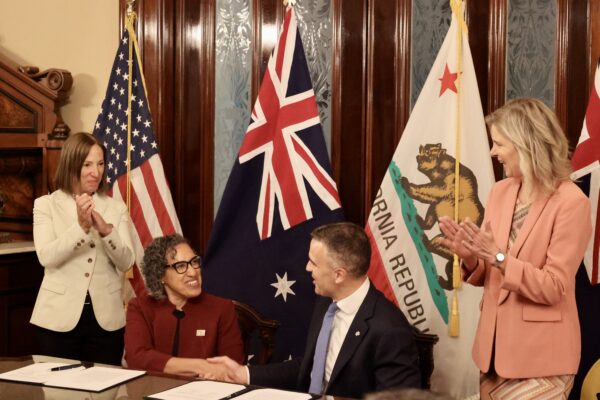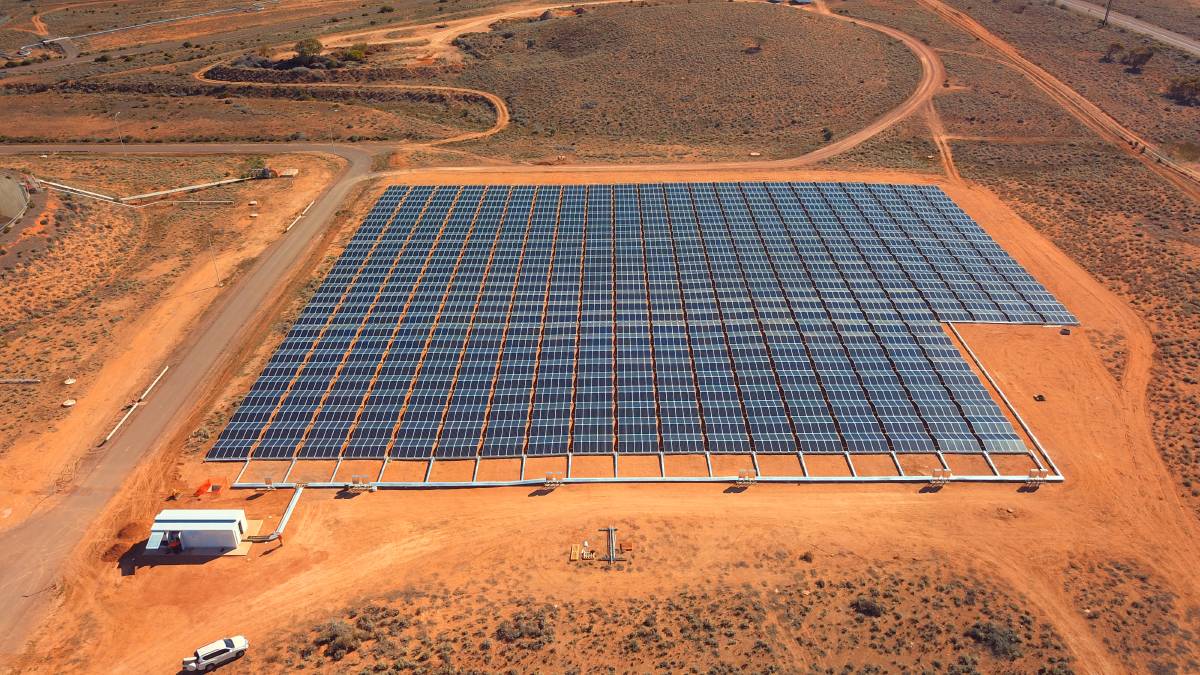The South Australian government has signed a letter of cooperation with the state of California to advance the jurisdictions’ world-leading ambitions in renewable energy and green hydrogen technology.
Central to the agreement will be a focus on the development of renewable hydrogen projects for the production of green hydrogen and other low and zero carbon fuels and scaling hydrogen production for use and export.
This will include cooperation between Hydrogen Power SA and the California Natural Resources Agency and California Energy Commission, and the sharing of practices on regulations and standards-setting to support the development of a green hydrogen industry.
The two states will also work together to advance large-scale renewable energy generation and storage technologies such as solar, wind, batteries, and long-duration energy storage.
South Australian Premier Peter Malinauskas, who signed the letter alongside California Acting Governor Eleni Kounalakis during a visit to the United States, said collaboration between the two states makes sense with both considered global leaders in the clean energy transition.
South Australia is targeting net zero emissions by 2050, propelled by its goal of net 100% renewable electricity by 2027 while California is aiming to achieve 100% clean electricity by 2045.
Both states having already registered periods where 100% of their energy needs have come from renewable sources.
“We are both already leaders in our respective nations when it comes to renewable energy, and we both share a commitment to advance clean hydrogen technology,” Malinauskas said.
“It just makes sense that two global leaders in renewable energy should work together to advance our shared interests in clean energy to advance our states’ economies and the world’s drive towards decarbonisation.”

Image: South Australian Government
In addition to the focus on green hydrogen production, the agreement will also see the two states work together to develop technologies to achieve better energy efficiency and demand management of distributed energy resources.
The states will also exchange best practices on policies and other mechanisms to support the uptake of zero emission vehicles, including light-duty passenger vehicles, medium-duty and heavy-duty trucks and buses, and goods movement, plus investment in charging and refuelling infrastructure.
Other initiatives in the agreement include cooperation on strategies to further the decarbonisation and electrification of buildings, industry, and transportation, to increase grid flexibility, demand response, and vehicle-to-grid technologies.
Kounalakis said the partnership is an example of the two states’ unwavering commitment to combatting the climate crisis.
“Together, we acknowledge that the fight against climate change knows no borders,” she said. “With a shared commitment to advancing renewable hydrogen and fostering clean energy solutions, this collaboration is another pivotal step towards a sustainable, clean energy future for generations to come.”
This content is protected by copyright and may not be reused. If you want to cooperate with us and would like to reuse some of our content, please contact: editors@pv-magazine.com.








2 comments
By submitting this form you agree to pv magazine using your data for the purposes of publishing your comment.
Your personal data will only be disclosed or otherwise transmitted to third parties for the purposes of spam filtering or if this is necessary for technical maintenance of the website. Any other transfer to third parties will not take place unless this is justified on the basis of applicable data protection regulations or if pv magazine is legally obliged to do so.
You may revoke this consent at any time with effect for the future, in which case your personal data will be deleted immediately. Otherwise, your data will be deleted if pv magazine has processed your request or the purpose of data storage is fulfilled.
Further information on data privacy can be found in our Data Protection Policy.